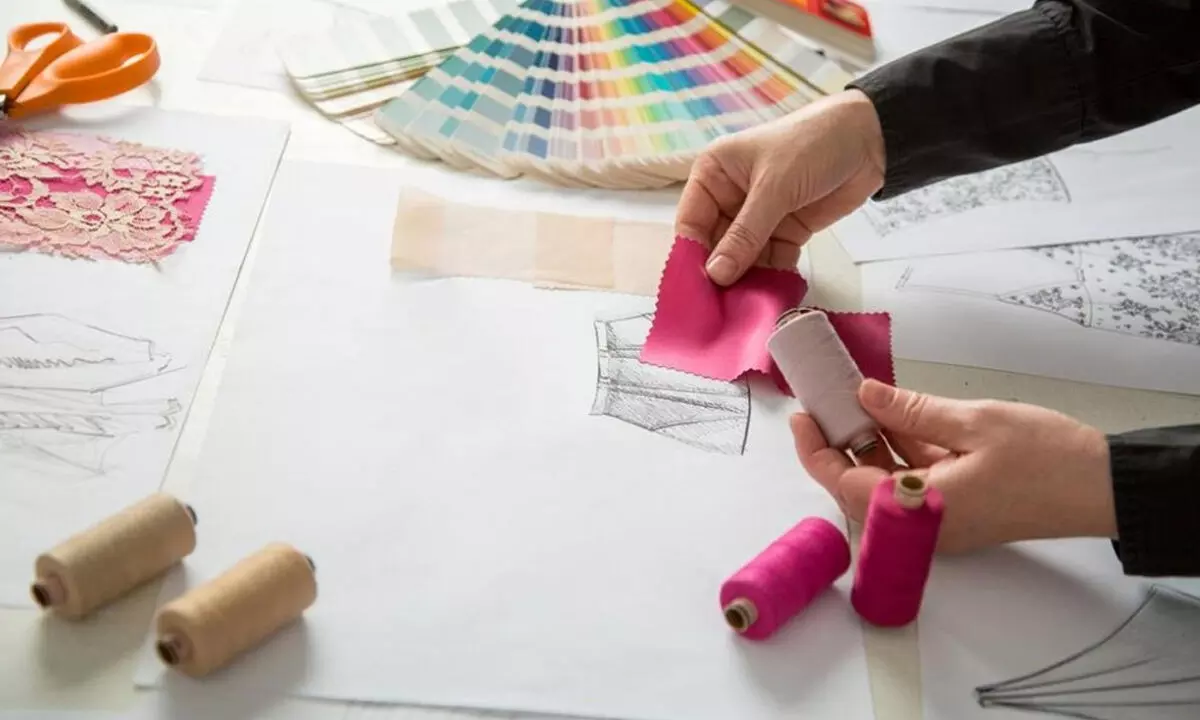How sustainability is shaping the future of fashion?

How sustainability is shaping the future of fashion?
Strap: Sustainable fashion is not just about what material you use/ reuse, but also how a garment/ product is made, who made it, what resources were used to produce it, and how it was sold, and purchased while considering the impact of its existence on the environment and eventually how it will die/get reused
The students pursuing studies in fashion and the new generation of designers are the practitioners of sustainable fashion in the future. Sustainable fashion is not just about what material you use/ reuse, but also how a garment/ product is made, who made it, what resources were used to produce it, and how it was sold, and purchased while considering the impact of its existence on the environment and eventually how it will die/get reused.
The present and upcoming labels have to transform the model of the supply chain as consumers are getting aware and conscious of their buying habits and their environmental effects. Therefore it is vital for the new age learners to think systematically about how the industry can be transformed into a sustainable future. Systemic thinking and sustainable fashion strategies must be at the core of design, fashion pedagogy and practice. We can no longer get away with fashion just expressing ideas.
Opportunities in the future within the fashion industry
There is a huge demand for sustainable fashion in the present and moving toward a better future also coined Slow Fashion. We now have a huge market for organic, recycled and natural products; followed by fair trade labeled - eco-friendly, animal cruelty-free charitable brands, and handmade - human-made products, which speak of the communities benefitting from their manufacture.
There has been a shift in production strategies within the international business to transfer the process of global production to local production. The Bay Area Based organisation believes the local production will reduce the impact of carbon footprint and support employment opportunities within the vicinity. The companies outsourcing and producing internationally will have to equip themselves with a well-tracked system to keep up with the fair pay, and working conditions within the partnered factories.
New career dimensions and initiatives for a sustainable tomorrow
Sustainability managers are now popular within the brands to check all the vital points to be labeled as environmentally conscious brands. Our production processes must minimize water and power consumption; our supply chains must be transparent and traceable; our retail systems need a revamp to include sustainable habits like renting/reusing clothes.
The future of sustainable fashion is moving towards creating a positive impact on the consumers and youth as they are well aware since the movement "who made my clothes" was precipitated by the collapse of the Raza Plaza building in Bangladesh.
Sustainable approaches
Fresh fashion aspirants are very well versed with the sustainable urgency in the fashion industry and while selecting the institution, they prefer a sustainable driven curriculum. Fashion industry changes in a revised and more sustainable way to not lose the passion and love of fashion for upcoming generations.
The younger generation and the educational institution have already incorporated sustainable approaches in all aspects of thinking. The future fashion industry will be completely transformed which is also a need of today and an opportunity to progress.
The educational learning of sustainability should be ingrained at the foundation level of a student so that it becomes a practice in everyday life. Therefore, the choice lies with us. Even steps taken in this direction, no matter how small, will be significant in shaping the Future.
New dimensions
With the shift in the business of fashion there is a new market for businesses such as thredUP and Rent the Runway promoting the power of sharing economy and rent instead contributing to curbing the back of closets or landfills.
There are new dimensions emerging like circular fashion business models such as rentals, resale, repair, and refurbishment. Also, dedicated platforms, for example, Depop which contribute to selling vintage clothes are showcasing the great potential for circular fashion.
According to sustainable fashion industry statistics, the market is expected to rise to $9.81 billion in 2025 and $15.17 billion in 2030 at a CAGR of 9.1%, due to the growing awareness of ethical fashion.
Awareness
We need to share how sustainable fashion encourages better practices for the industry and promotes longevity of the product, something confronting the fashion world, which thrives on rapidly making new offerings to users.
We have to be well-educated on what exactly is sustainable, and at the same time affordable, we are being taught to incorporate organic fabrics but that itself is just not. Almost 2,700 liters of water is used to produce a single cotton-t-shirt, this is what the average human consumes in 3 years. According to Mckinsey Report 2020, The Sustainable fashion Statistics, 67 per cent of consumers are now concerned about the harmful effects of their clothing consumption. 60 per cent of the users are initiating efforts to reduce impulsive buying and instead reused and recycle. The future of sustainable fashion is definitely gaining momentum within the institutions, brands, and the youth adapting the sustainable approach at a faster pace, though there is much more implementation and awareness to be spread across our ecosystem.
(The author is the Design Manager at The design village)











